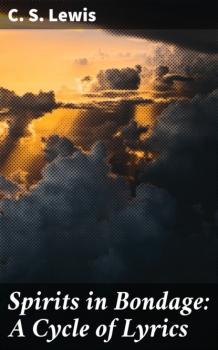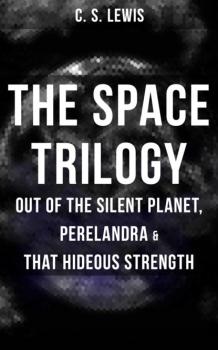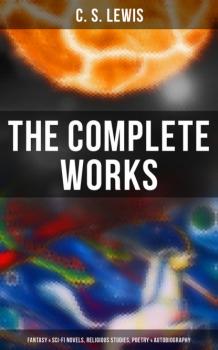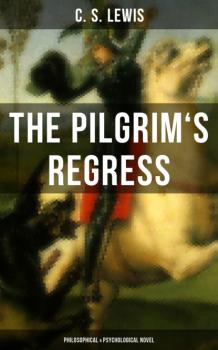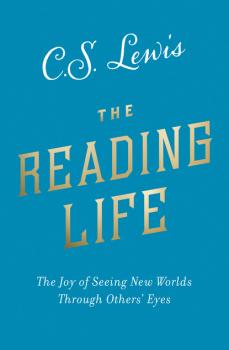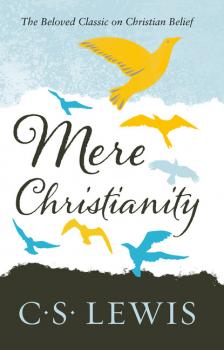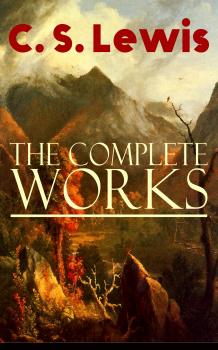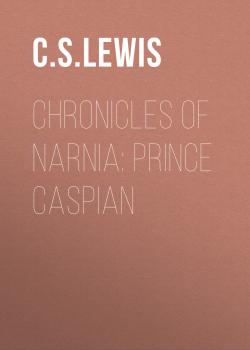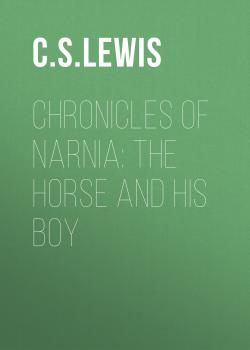C. S. Lewis
Список книг автора C. S. LewisTHE SCREWTAPE LETTERS & SCREWTAPE PROPOSES A TOAST (Unabridged)
The Screwtape Letters is a Christian apologetic novel. It is written in a satirical, epistolary style and while it is fictional in format, the plot and characters are used to address Christian theological issues, primarily those to do with temptation and resistance to it. The story takes the form of a series of letters from a senior Demon Screwtape to his nephew Wormwood, a Junior Tempter. The uncle's mentorship pertains to the nephew's responsibility for securing the damnation of a British man known only as «the Patient». In The Screwtape Letters, C. S. Lewis provides a series of lessons in the importance of taking a deliberate role in Christian faith by portraying a typical human life, with all its temptations and failings, seen from devils' viewpoints. Lewis wrote the sequel Screwtape Proposes a Toast – a critique of certain trends in British public education (Although Britain calls its major private schools «public schools», Lewis is referring to state schools when he criticizes «public education»). Clive Staples Lewis (1898-1963) was a British novelist, poet, academic, medievalist, lay theologian and Christian apologist. He is best known for his fictional work, especially The Screwtape Letters, The Chronicles of Narnia, and The Space Trilogy, and for his non-fiction Christian apologetics, such as Mere Christianity, Miracles, and The Problem of Pain.
Spirits in Bondage: A Cycle of Lyrics
"Spirits in Bondage: A Cycle of Lyrics" by C. S. Lewis. Published by Good Press. Good Press publishes a wide range of titles that encompasses every genre. From well-known classics & literary fiction and non-fiction to forgotten−or yet undiscovered gems−of world literature, we issue the books that need to be read. Each Good Press edition has been meticulously edited and formatted to boost readability for all e-readers and devices. Our goal is to produce eBooks that are user-friendly and accessible to everyone in a high-quality digital format.
The Complete Works: Fantasy & Sci-Fi Novels, Religious Studies, Poetry & Autobiography
This C. S. Lewis collection is formatted to the highest digital standards. The edition incorporates an interactive table of contents, footnotes and other information relevant to the content which makes the reading experience meticulously organized and enjoyable. Novels: The Chronicles of Narnia: The Lion, the Witch and the Wardrobe Prince Caspian The Voyage of the Dawn Treader The Silver Chair The Horse and His Boy The Magician's Nephew The Last Battle Space Trilogy: Out of the Silent Planet Perelandra That Hideous Strength The Screwtape Letters The Pilgrim's Regress The Great Divorce Till We Have Faces Short Stories: Screwtape Proposes a Toast Ministering Angels Religious Studies: The Allegory of Love The Problem of Pain A Preface to Paradise Lost The Abolition of Man Miracles Mere Christianity Reflections on the Psalms The Four Loves An Experiment in Criticism A Grief Observed Letters to Malcolm: Chiefly on Prayer Poetry: Spirits in Bondage: A Cycle of Lyrics Autobiography: Surprised by Joy: The Shape of My Early Life Speeches: Transposition The Weight of Glory Membership Learning in War-Time The Inner Ring De Descriptione Temporum The Literary Impact of the Authorised Version Hamlet: The Prince or The Poem? Kipling's World Sir Walter Scott Lilies that Fester Psycho-analysis and Literary Criticism The Inner Ring Is Theology Poetry? Transposition On Obstinacy in Belief The Weight of Glory Clive Staples Lewis (1898-1963) was a British novelist, poet, academic, medievalist, literary critic, essayist, lay theologian, broadcaster, lecturer, and Christian apologist. He is best known for his fictional work, especially The Chronicles of Narnia, The Screwtape Letters and The Space Trilogy, and for his non-fiction Christian apologetics, such as Mere Christianity, Miracles, and The Problem of Pain.
THE PILGRIM'S REGRESS (Philosophical & Psychological Novel)
The Pilgrim's Regress is a book of allegorical fiction. It charts the progress of a main character named John through a philosophical landscape in search of the Island of his desire. He struggles with the modern phoniness, hypocrisy and intellectual vacancy of the Christian church, Communism, Fascism and various philosophical and artistic movements. It balances Lewis's Neoplatonic mindset with a Kierkegaardian faith-based understanding. Clive Staples Lewis (1898-1963) was a British novelist, poet, academic, medievalist, lay theologian and Christian apologist. He is best known for his fictional work, especially The Screwtape Letters, The Chronicles of Narnia, and The Space Trilogy, and for his non-fiction Christian apologetics, such as Mere Christianity, Miracles, and The Problem of Pain.
The Reading Life
How to Read provides guidance and reflections on the love and enjoyment of books. Engaging and enlightening, this well-rounded collection includes Lewis’ reflections on science fiction, why children’s literature is for readers of all ages, and why we should read two old books for every new one.C. S. Lewis continues to speak to readers thanks to not only his intellectual insights on Christianity but also his wondrous creative works and deep reflections on the literature that impacted his life. Beloved for his teaching novels like Screwtape Letters, The Great Divorce, and The Chronicles of Narnia as well as his narrative books that explored theology and Christian life, Lewis was a long-time writer and lover of books of every kind.Cultivated from his many essays, articles, letters, as well as his classic works, How to Read is a collection of Lewis’s writings that provides both guidance and reflections on the love and enjoyment of books. A lens into the thoughts of one of the greatest public intellectuals of our time, this collection reveals what Lewis himself loved so much about reading and what it means to learn through literature–all in one accessible volume.
Mere Christianity
One of the most popular and beloved introductions to the concept of faith ever written, ‘Mere Christianity’ has sold millions of copies worldwide.The book brings together C.S. Lewis’s legendary radio broadcasts during the war years, in which he set out simply to ‘explain and defend the belief that has been common to nearly all Christians at all times’.Rejecting the boundaries that divide Christianity’s many denominations, ‘Mere Christianity’ provides an unequalled opportunity for believers and nonbelievers alike to absorb a powerful, rational case for the Christian faith.

